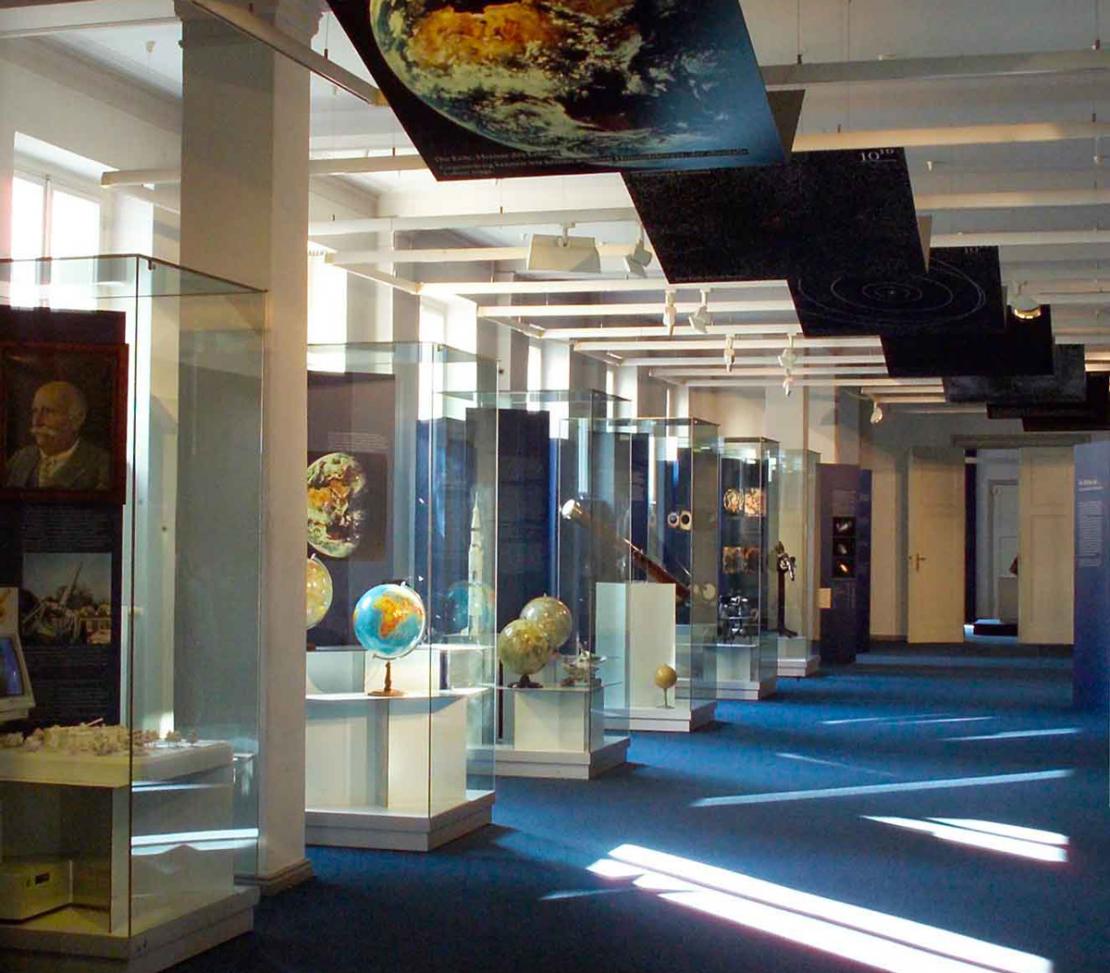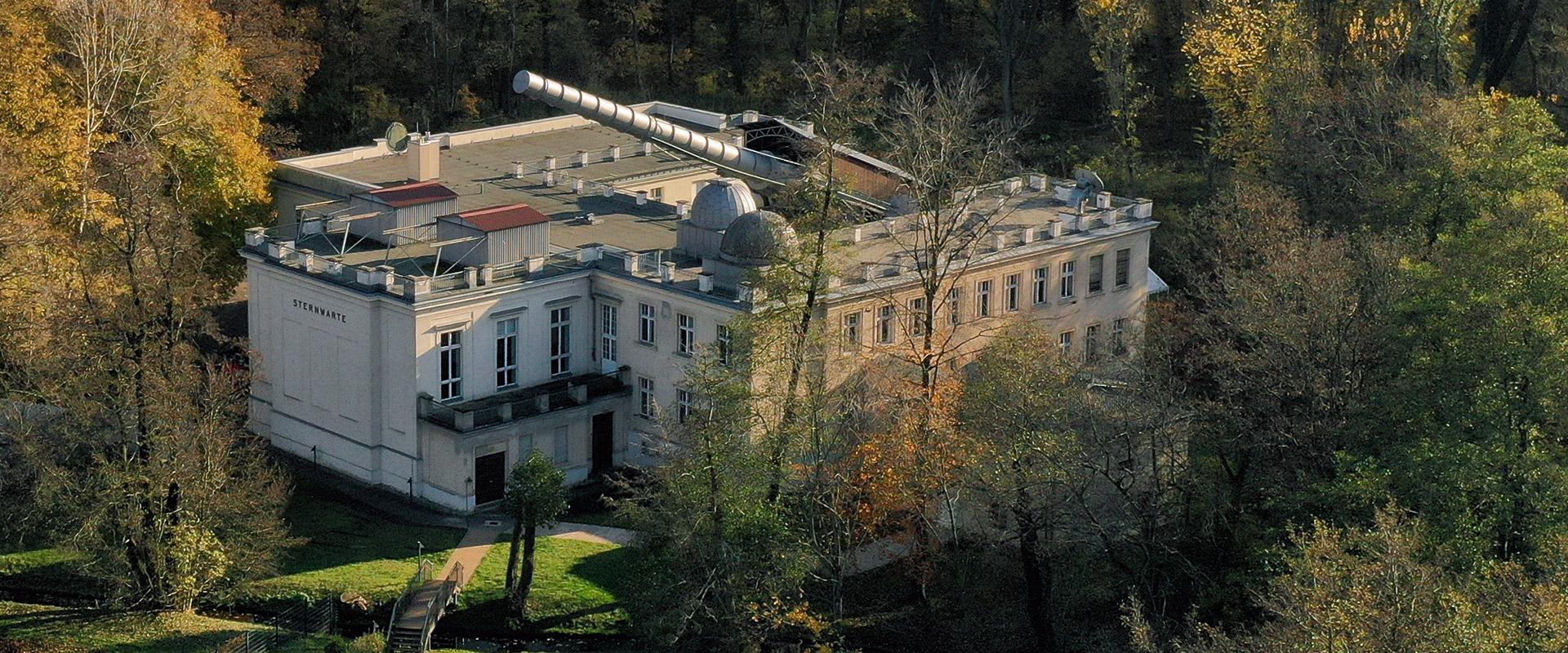
Archenhold-Sternwarte
The Archenhold-Sternwarte (Archenhold-Observatory) is the largest and oldest public observatory in Germany. Since 1896, visitors have been able to observe the sky here – in the middle of Treptower Park – with the longest movable refracting telescope in the world. The building's attractions include the "Great Refractor", the historic Einstein Hall, the Zeiss-Kleinplanetarium (small planetarium) and a Museum of Astronomy. With its diverse offerings, the Archenhold-Sternwarte invites you on a journey through the world of astronomy. Discover the dimensions of the universe, the solar system and the historical development of astronomy in the exhibitions and marvel at a giant iron meteorite!
Technical update at the Archenhold-Sternwarte:
The Observatory will be closed from 22 April up until 24 May 2024. During this time, the technical equipment in the Small Planetarium and the Einstein Hall will be modernised for you. Thank you for your understanding - we look forward to welcoming you again soon.
Museum of Celestial Science
The Museum of Celestial Science is open during the Archenhold Observatory's event times and shows the fascinatiing history of astronomy from its inception to today.
Admission to the museum is free of charge.
Getting here
Archenhold-Sternwarte | Alt-Treptow 1 | 12435 Berlin
S-Bahn
S8, S9 → Plänterwald (12-minute walk)
S41, S42 → Treptower Park (20-minute walk)
S85 → Treptower Park (20-minute walk)
Bus
165, 166, 265, N65 → Alt-Treptow
Car
You will find public parking spaces next to the Zenner restaurant and in Bulgarische Straße in the direction of the Spree.
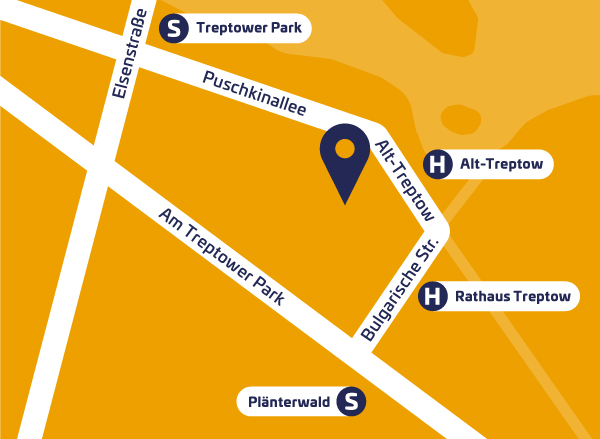
Guided tours for school classes and groups
Individual guided tours of the observatory and the Museum of Celestial Science are available for school classes and groups by appointment from Monday - Thursday.
Contact: info@planetarium.berlin / Tel.: +49 30 421845-10
Accessibility
The Archenhold-Sternwarte is a listed building. Unfortunately, large parts of it are currently not barrier-free. We are working on making a larger part of the building accessible to all of our visitors.
FAQ - Frequently asked questions
Do you have any further questions about a planned visit? You can find our FAQS here.
You are also welcome to contact our information hotline with your questions:
Tel. +49 (30) 421 845-10
(Mon: 9:00 – 17:00 | Tue – Fri: 9:00 – 20:00 | Sat: 10:00 – 20:00 | Sun: 10:00 – 17:00)
Current visitor information
In order to protect you and our staff as well as possible during your visit, please observe our current hygiene and safety concept, which you can read here.
Information and ticket hotline
Tel. +49 (30) 421 845-10
(Mon & Tue: 9:00 – 17:00 | Wed – Fri: 9:00 – 20:00 | Sat: 10:00 – 20:00 | Sun: 10:00 – 17:00)
info@planetarium.berlin
Opening hours ticket office
Friday: 17:00 - 22:00
Saturday: 14:30 - 22:00
Sunday: 12:30- 17:00
The ticket office opens 30 minutes before the start of each event. Opening hours vary during the Berlin school holidays and on public holidays.
Price of admission
Guided tours, observations, lectures, planetarium programmes: € 7,50 / reduced price* € 5,50
Family ticket Learning (2 adults + 3 children under 18 years): € 20
School classes/nursery groups: € 4 per person (up to two teachers/educators accompanied by a school class, day-care centre, children's or youth group receive free admission)
Other prices may apply for special events.
*Reduced prices of admission
Reduced prices of admission are possible on presentation of proof or appropriate identification. Students; trainees; holders of the "berlinpass" as well as recipients of social welfare, basic income support, unemployment benefit II, social assistance and benefits under the Asylum Seekers' Benefits Act; recipients of unemployment benefit, housing benefit or child allowance; school leavers without an apprenticeship or job; persons doing voluntary military service and persons doing voluntary cultural, social or ecological service.
Groups of 10 or more pay the reduced price.
Free admission
On presentation of appropriate proof or ID, the following are admitted free of charge: persons accompanying severely disabled persons with a "B" in their ID; up to two teachers or educators accompanying a school class, children's or youth group; representatives of the press; employees of planetariums, observatories and museums, members of ICOM (International Council of Museums) and DMB (German Museums Association); members of the Friends of the Stiftung Planetarium Berlin for all offers in the Learning category.
Information on online tickets
Tickets for wheelchair users and their accompanying persons (for safety reasons there are fixed seats), family tickets, group discounts and reductions/free tickets in the context of cooperations (e.g. Berlin Family Pass) cannot be booked in the online shop, but are only available at the ticket office on site. A refund of differences resulting from the purchase of regular online tickets is not possible.
History
The Archenhold-Sternwarte is the oldest and largest public observatory in Germany. Since 1896, visitors have been able to observe the sky here – in the middle of Treptower Park – with the longest movable refracting telescope in the world. The observatory was founded to impart scientific and astronomical knowledge to the general public. In 1915, Albert Einstein gave his first public lecture on the general theory of relativity in the observatory's large lecture hall.
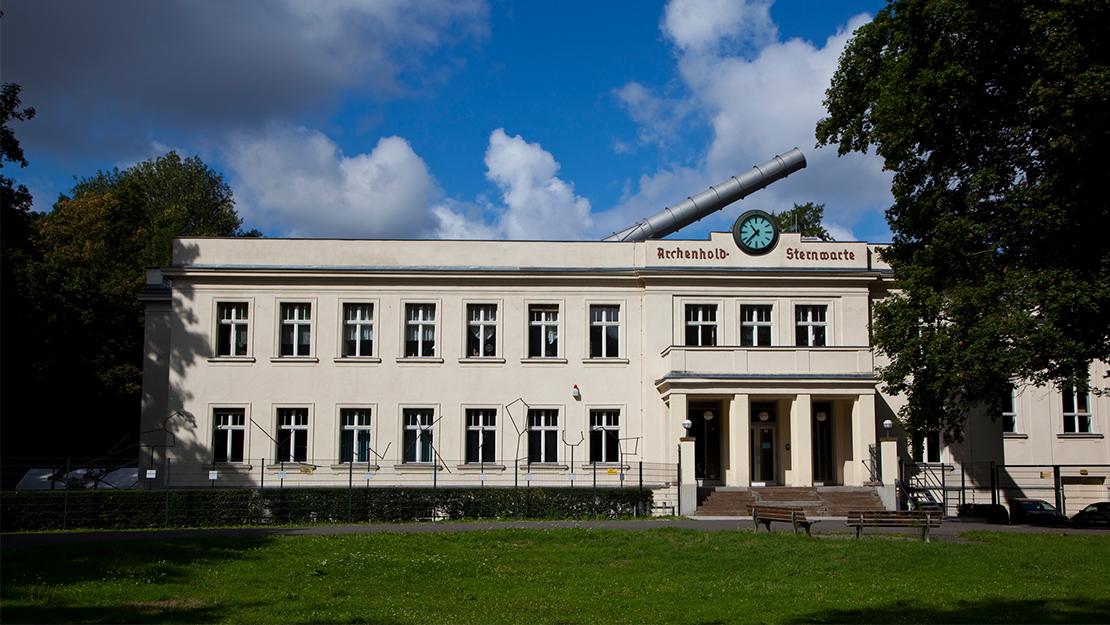
Technology and instruments
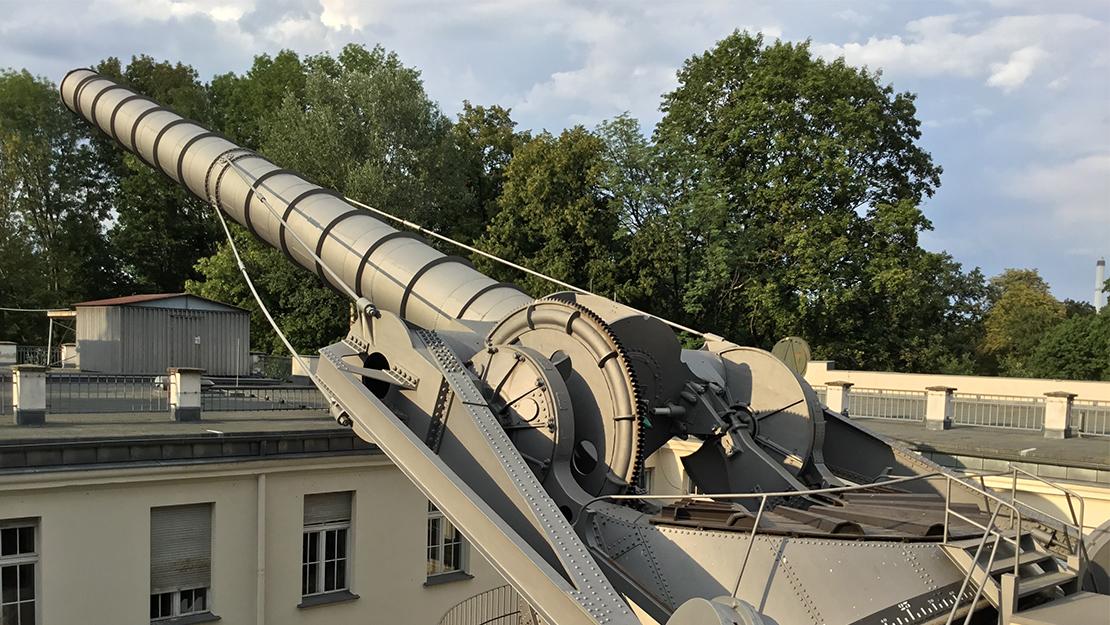
In the Archenhold-Sternwarte, various astronomical instruments are available to observe the sky. The centrepiece is the Treptow Giant Telescope, which was built in 1896 and is often popularly referred to as the "sky cannon". With a focal length of 21 metres, it is the longest fully movable refractor on earth. With a lens diameter of 680 millimetres, it is also one of the ten most powerful refractors in the world. This colossus weighs a total of 130 tons and is still fully functional today.
Powerful telescopes and other instruments for sky observation are available on the outdoor grounds of the Archenhold-Sternwarte. These include the Cassegrain reflector telescope, the Coudé telescope and the Solar Physics Cabinet.
The observatory also houses a smaller Zeiss-Kleinplanetarium with space for 38 visitors.
Museum in the Archenhold-Observatory
Astronomy is observing and measuring – that is the central theme of the permanent exhibition on celestial science in the historic building of the Archenhold-Sternwarte in Berlin-Treptow. Since 1909, what is still the largest public observatory has been presenting exhibitions on astronomy, one of the oldest sciences known to man.
The first celestial observations date back many millennia, when landmarks were used to try to identify connections between life on Earth and the movements of celestial bodies. From these origins to modern space astronomy, the permanent exhibition traces the development of observatories, including their buildings, instruments and observation techniques – from Stonehenge to radio astronomy and space telescopes.
Changing special exhibitions are dedicated to the development of astronomy and highlight different focal points.
